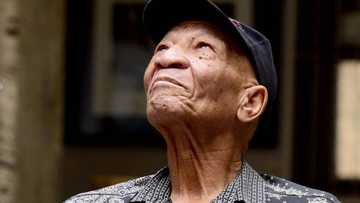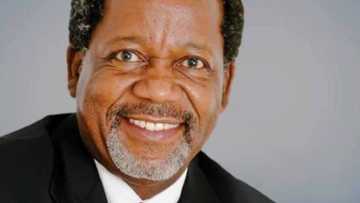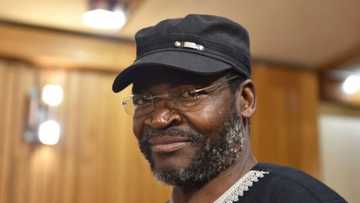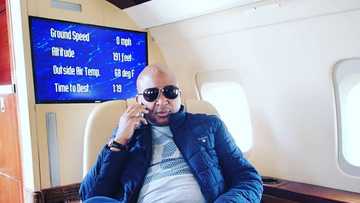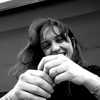Archbishop Desmond Tutu Hits the Milestone Birthday of 90, Let’s Take a Look at his Greatest Moments
- Desmond Tutu was born in Klerksdorp on 7 October 1931 to Xhosa and Tswana parents
- He is known for his role as an unwavering freedom fighter during the dark days of apartheid
- In 1984, he was awarded the Nobel Prize for Peace, and in 1986, he became the first black cleric to lead the Anglican Church
PAY ATTENTION: Follow Briefly News on Twitter and never miss the hottest topics! Find us at @brieflyza!
In honour of Desmond Mpilo Tutu's milestone 90th birthday, let's take a look at the greatest moments from this South African legend.
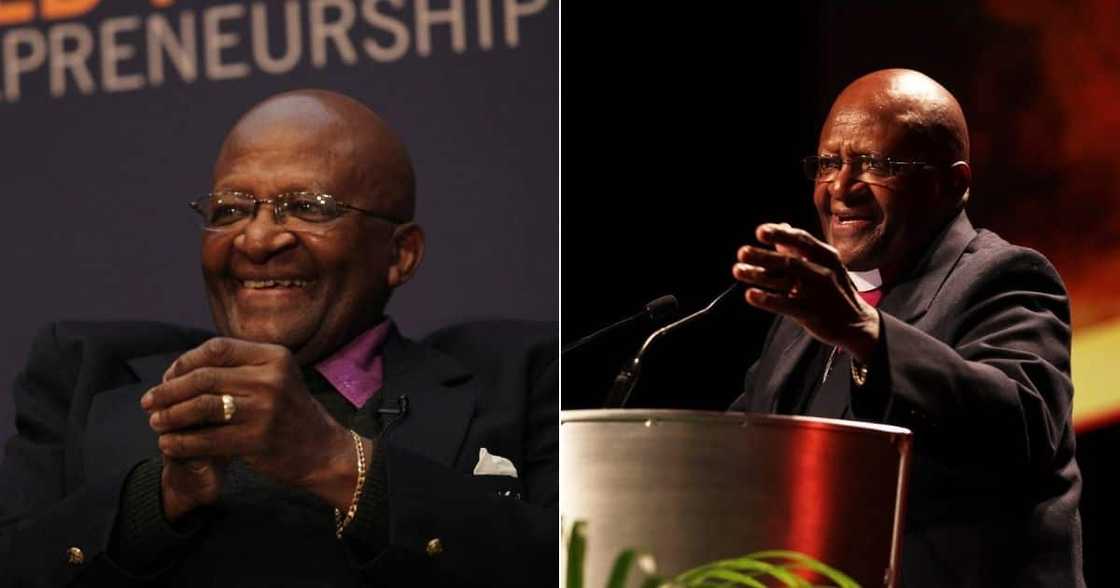
Source: UGC
The following information was gathered from an article first published by IOL.
1. The moment he decided to become an Anglican priest
Archbishop Desmond Tutu's first interaction with an Anglican priest was Trevor Huddleston who was a white man relentlessly opposed to apartheid. One day, the priest tipped his hat to Tutu's mother as a sign of respect. This was unusual considering the unequal and brutal times. Tutu was only nine-years-old at the time, and when he found out who Trevor was, he decided he would one day become an Anglican priest too and lead his life as a man of God.
PAY ATTENTION: Never miss breaking news – join Briefly News' Telegram channel!
2. Fighting against Bantu Education
When the Bantu Education Act of 1953 was implemented by the apartheid government, it sought to entrench an inferior education system for black students. Around this time, Tutu obtained a diploma in teaching and a bachelor's degree in arts. After three years as an educator, he couldn't handle the affects of Bantu education on black youth and quit his profession to protest against the act.
3. The beginning of priesthood
No longer a teacher, Tutu began his journey on a new path that defined the rest of his life. He enrolled at St Peter’s Theological College where he was ordained as a deacon in 1960, and in 1961, he became a priest. The following year, he began studying towards his Honours and Master's degrees in Theology at King’s College, London. He qualified in 1966.
4. Early leadership roles
Tutu soon took on leadership roles which included the Bishop of the Anglican Church in Lesotho and general secretary of the South African Council of Churches. He used his influence to fight against the apartheid regime and was in full support of freedom, equality and democracy.
5. Proactive against segregation
In 1976, South Africa was under the leadership of Prime Minister John Vorster. During this time, Tutu wrote a letter to the prime minister detailing a possible uprising. This uprising soon came into fruition on 16 June, a day everyone in the country remembers as Youth Day. After this, the apartheid government felt that Tutu was too influential and outspoken, so they revoked his passport. However, the international community spoke out against this and the government reissued his passport. This allowed Tutu to continue rallying support around the world against the regime.
6. Nobel Prize for Peace
Tutu was awarded the Nobel Prize for Peace in 1984 for his efforts to end apartheid in a peaceful manner. He was the second South African to receive the accolade and followed in the footsteps of the late, Albert Luthuli, who received his Nobel in 1961.
7. Archbishop of Cape Town and other roles
After being appointed the Bishop of Johannesburg in 1985, Tutu went on to become the Archbishop of Cape Town a year later. This made him the first black cleric to lead the Anglican Church in South Africa. For 10 years, from 1987 to 1997, he was the president of the All Africa Conference of Churches. In 1996, Tutu officially retired from his role in the Anglican Church and became an Archbishop Emeritus. Soon after, he establish the Desmond Tutu Peace Trust.
8. Chair of the Truth and Reconciliation Commission
After South Africa's first democratic elections in 1994, Tutu chaired the country’s Truth and Reconciliation Commission. He was appointed by President Nelson Mandela. The commission was established to investigate the human right violations during apartheid and provided a platform for victims to share their harrowing stories.
“Mkhulu wethu”: Mzansi celebrates Bishop Desmond Tutu’s 90th birthday
In related news, Briefly News reported that South Africans are celebrating the birthday of one of the influential leaders from Southern Africa and that is Archbishop Desmond Tutu. Tutu was born on this day back in 1931. From politicians such as President Cyril Ramaphosa to advocates in the form of Thuli Madonsela, many people are sharing their messages.
According to News24, the Desmond Tutu Trust Foundation released a statement that the old man will celebrate his birthday with family and close relatives. The foundation explained that close family members travelled from overseas, including his daughters.
Apart from the Bishop's two girls, Naomi and Mpho, his sister, Gloria Radebe, has also arrived in Cape Town.
On the other hand, IOL also ran an article on the life and times of the celebrated icon. Tutu was born in Klerksdorp in the North West province 90 years ago and received the lucrative Nobel Prize for Peace in 1984 for his massive role in halting racial violence.
Source: Briefly News

